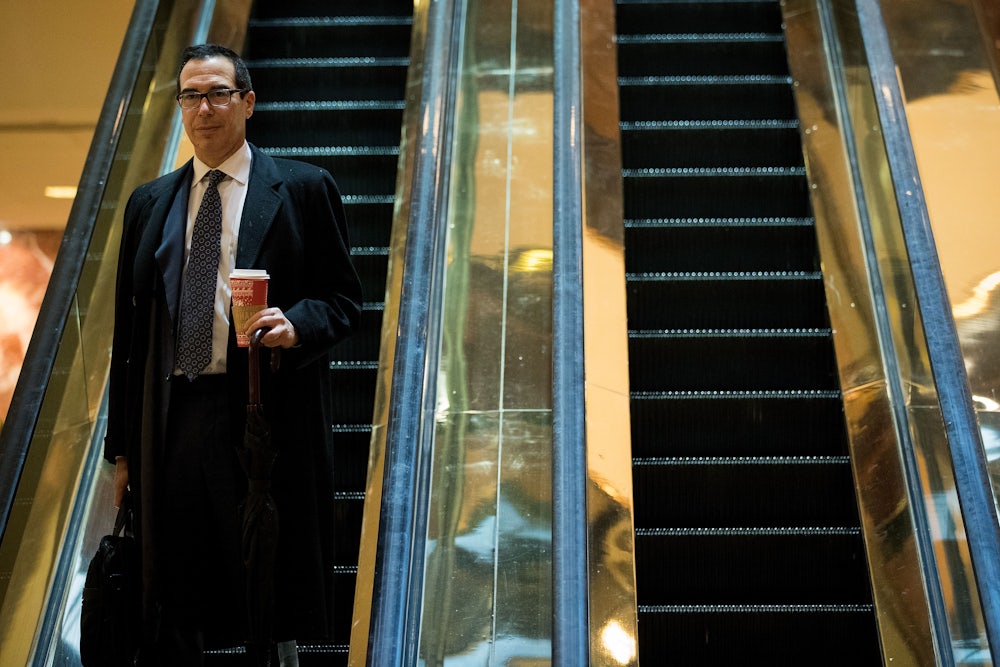Trump’s victory has been spun again and again as a backlash against out-of-touch elites. Trump, the narrative goes, rode a populist wave by railing against corrupt financial and governmental institutions and arguing that only he—a man who had played the system to his own advantage—could drain the swamp.
But nine days after his unexpected victory, Trump—and the Republicans in control of Congress—have shown every sign that they plan on unleashing America’s financial institutions. Politico describes Trump’s expected cabinet as an “investment banker’s dream,” with either former Goldman Sachs partner Steven Mnuchin or JPMorgan Chase CEO Jamie Dimon as Treasury secretary, billionaire Wilbur Ross in Commerce, and former Goldman banker Steve Bannon helping to run the show in the West Wing. (Bannon’s history with Goldman, however, is hardly the most troubling thing about him, or his proximity to Trump.) Moreover, Trump has promised to dramatically decrease taxes for the wealthiest Americans and signaled that he will deregulate the financial industry to a nearly unprecedented degree. “You would have to go back to the 1920s to see so much Wall Street influence coming to Washington,” Charles Geisst, a Wall Street historian at Manhattan College, told Politico. And there’s a reason why Wall Street regulation increased after the 1920s!
The most pressing political question is if Trump’s voters will see this as a bait and switch—the common betrayal in which a politician promises one thing to get a vote and then does another when he enters office. For the moment, Trump’s connection to his voters seems ironclad, which may help explain the lack of shame on display here. But that may change if he continues to empower the elites he promised to rein in.
